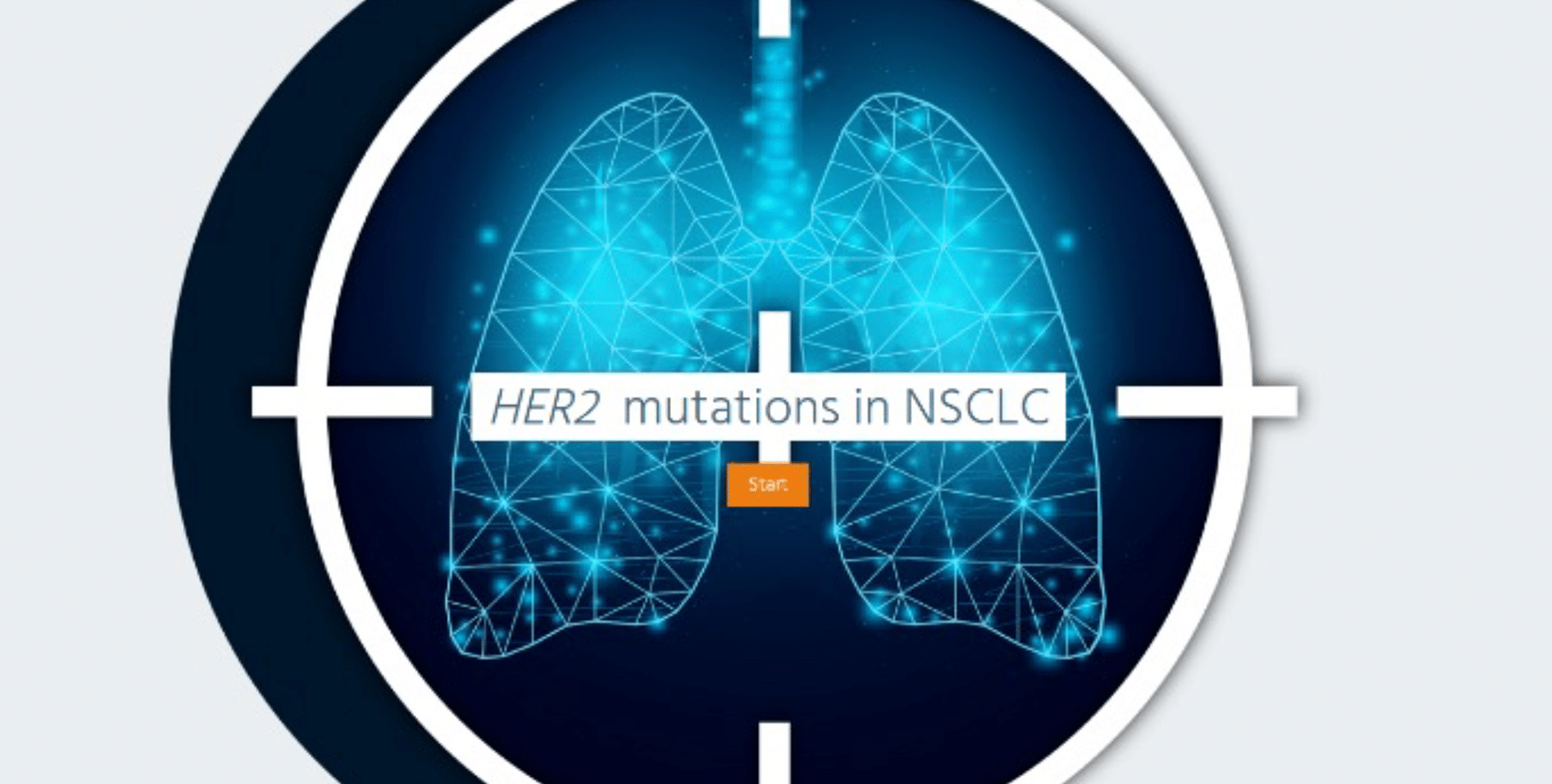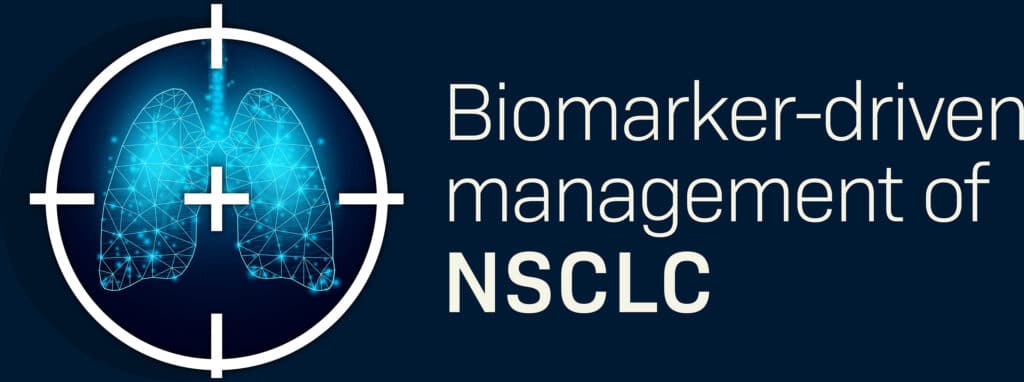HER2 mutations in NSCLC
By Fernando López-Ríos
Learn how to apply best practices for detection of HER2 mutations in NSCLC and current and emerging targeted treatment options for HER2-positive patients.

Register to access
Learning objectives
After completing this activity, you will be able to:
- Describe the incidence and characteristics associated with HER2 mutations in NSCLC
- Select appropriate biomarker tests to inform treatment selection for patients with HER2 mutation-positive NSCLC
- Integrate new clinical data on targeted therapies into clinical practice to create individualized treatment plans for patients with HER2 mutation-positive NSCLC
Activity overview
These simulation-based case studies are available with video and text. The activity is best supported via a computer or mobile device with current versions of the following browsers: Mozilla Firefox, Google Chrome, or Safari.
Release date: 17th March 2025
Expiration date: 17th March 2026
Estimated time to complete: 15 minutes
Accreditation

This activity has been planned and implemented by the Postgraduate Institute for Medicine (PIM) and Springer Healthcare IME. PIM is committed to ensuring that all jointly provided activities are planned and implemented in accordance with the requirements of the Accreditation Council for Continuing Medical Education (ACCME), the American Nurses Credentialing Center Commission on Accreditation (ANCC), and the Accreditation Council for Pharmacy Education (ACPE), or other accrediting body, as appropriate to the type of credit to be provided by the activity.
The Postgraduate Institute for Medicine designates this activity for a maximum of 0.25 AMA PRA Category 1 Credit(s)™. The maximum number of hours awarded for this Continuing Nursing Education program is 0.25 contact hours.
How to claim your credits
To claim your credits, you will need to complete the activity module, then fill out the short evaluation form at the end of the module. Physicians should claim only the credit commensurate with the extent of their participation in the activity.


